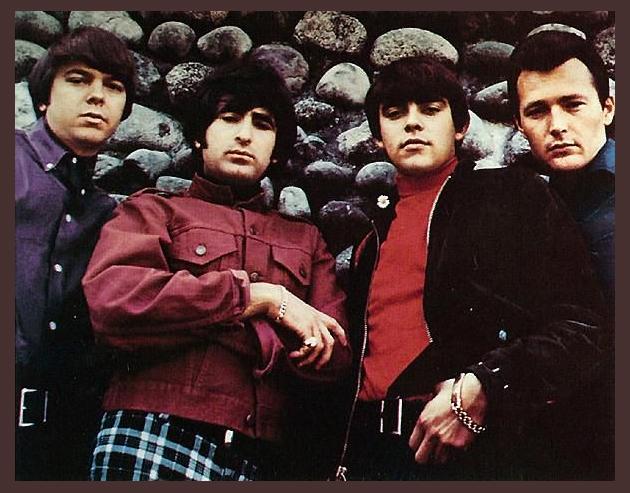 The Standells
The Standells
The Standells: The Gritty Charm of "Dirty Water"
In the vibrant era of the mid-1960s, amidst the British Invasion and the psychedelic revolution, a lesser-known band emerged from the heart of Boston, Massachusetts, with a raw and rebellious sound that would resonate through the decades. The Standells, led by their enigmatic frontman Dick Dodd, left an indelible mark on rock 'n' roll history with their iconic anthem, "Dirty Water."
Origins and Influences:
The Standells formed in 1962 under the original name "The Ravens." Influenced by the gritty blues and rockabilly sounds of artists like Bo Diddley and Chuck Berry, they developed a distinct style that blended primal rhythms with catchy melodies.
The Breakout Hit:
In 1966, the Standells released their debut single, "Dirty Water," which became their signature tune. The song's raw energy, infectious chorus, and lyrics that celebrated the working-class authenticity of Boston's waterfront resonated with listeners and became an instant hit.
Controversies and Challenges:
Despite their success, The Standells faced challenges. Critics dismissed their music as overly simplistic, and the band's hard-partying lifestyle often overshadowed their musical talent. Additionally, the controversial lyrics of "Dirty Water," which some interpreted as glorifying alcoholism, sparked controversy.
Discography:
The Standells released a string of albums during their brief but influential career:
* The Standells (1966)
* Try It (1967)
* Rugs and Vines (1967)
* Graffiti (1968)
* Live at the Boston Tea Party (1968)
Members:
The core members of The Standells throughout their existence were:
* Dick Dodd (vocals, drums)
* Gary Anderson (lead guitar)
* John Charles Barron (rhythm guitar, vocals)
* Tony Valentino (bass guitar)
Later Years and Legacy:
The Standells disbanded in 1972, but their impact on rock music continued to be felt. The band's raw and rebellious sound influenced countless subsequent artists, including the Ramones and Green Day. "Dirty Water" remains a timeless classic, celebrated as a quintessential anthem of Boston pride and the enduring spirit of rock 'n' roll.
In the vibrant era of the mid-1960s, amidst the British Invasion and the psychedelic revolution, a lesser-known band emerged from the heart of Boston, Massachusetts, with a raw and rebellious sound that would resonate through the decades. The Standells, led by their enigmatic frontman Dick Dodd, left an indelible mark on rock 'n' roll history with their iconic anthem, "Dirty Water."
Origins and Influences:
The Standells formed in 1962 under the original name "The Ravens." Influenced by the gritty blues and rockabilly sounds of artists like Bo Diddley and Chuck Berry, they developed a distinct style that blended primal rhythms with catchy melodies.
The Breakout Hit:
In 1966, the Standells released their debut single, "Dirty Water," which became their signature tune. The song's raw energy, infectious chorus, and lyrics that celebrated the working-class authenticity of Boston's waterfront resonated with listeners and became an instant hit.
Controversies and Challenges:
Despite their success, The Standells faced challenges. Critics dismissed their music as overly simplistic, and the band's hard-partying lifestyle often overshadowed their musical talent. Additionally, the controversial lyrics of "Dirty Water," which some interpreted as glorifying alcoholism, sparked controversy.
Discography:
The Standells released a string of albums during their brief but influential career:
* The Standells (1966)
* Try It (1967)
* Rugs and Vines (1967)
* Graffiti (1968)
* Live at the Boston Tea Party (1968)
Members:
The core members of The Standells throughout their existence were:
* Dick Dodd (vocals, drums)
* Gary Anderson (lead guitar)
* John Charles Barron (rhythm guitar, vocals)
* Tony Valentino (bass guitar)
Later Years and Legacy:
The Standells disbanded in 1972, but their impact on rock music continued to be felt. The band's raw and rebellious sound influenced countless subsequent artists, including the Ramones and Green Day. "Dirty Water" remains a timeless classic, celebrated as a quintessential anthem of Boston pride and the enduring spirit of rock 'n' roll.